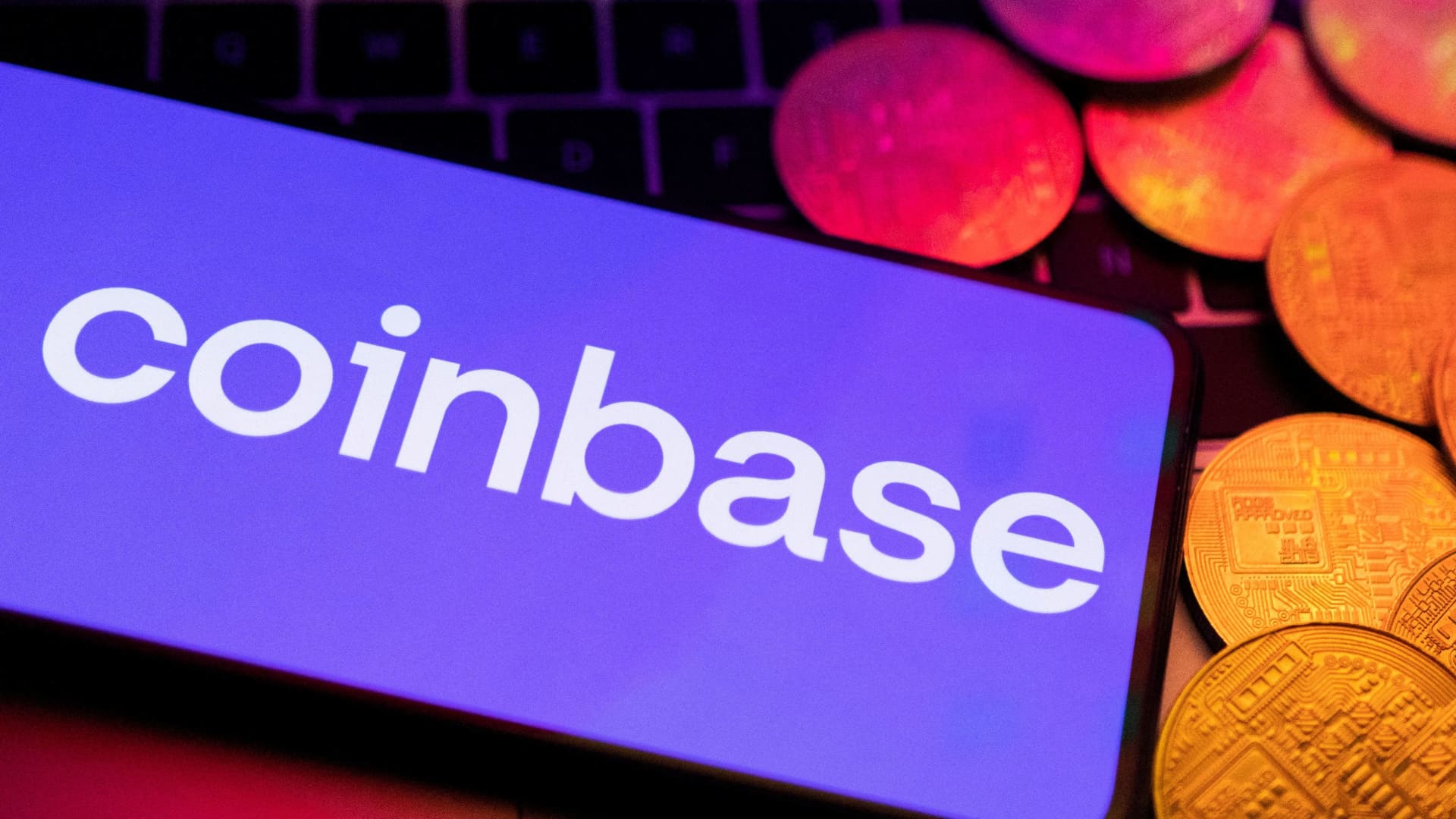April 1: Babylon, a bitcoin staking protocol, announced a strategic integration to advance Lorenzo Protocol’s bitcoin liquid restaking product, according to the team: “Lorenzo Protocol will be constructed utilizing Babylon technology. Through the integration, Lorenzo Protocol’s BTC liquid restaking tokens (stBTC) will be representations of bitcoin staked through Babylon’s bitcoin restaking protocol. The integration ensures security alignment as Lorenzo Protocol’s liquid restaking tokens are only available on layer 2s that are secured by Babylon’s bitcoin staking and timestamping protocol.”
BSX, Non-Custodial CLOB Perps DEX on Base, Launches Open Beta
April 1: BSX, a non-custodial central limit order book (CLOB) decentralized exchange (DEX) for perpetual futures contracts, built on Coinbase’s layer-2 chain, Base, and backed by the Base Ecosystem Fund and advised by BitMEX founder Arthur Hayes, has launched its Open Beta on mainnet. According to the team: “BSX aims to compete with leading centralized exchanges (CEXs) by offering low-fee trading and CEX-like trading performance (10 ms order matching), while giving users full self-custody. BSX was born out of the turbulent collapse of FTX, which the BSX founders witnessed personally as they worked at Coinbase, Jump, Kraken and FalconX. BSX’s public testnet saw strong traction with over 5B in volume traded and over 4,000 unique traders.”
Portal Announces Collaboration to Integrate DEX With SatoshiSync’s Inscription Protocol
April 1: Portal announced a collaboration to integrate Portal’s DEX with SatoshiSync’s chain-agnostic inscription protocol for the Bitcoin finance ecosystem. According to the team: “The collaboration will advance the cross-chain trading of SatoshiSync’s native token $SSNC by simplifying and securing the process for users to trade and manage assets across multiple blockchains. Portal’s extensive network of blockchains using the Portal Swap SDK will enable the seamless trading of $SSNC, SatoshiSync-bridged Ordinal NFTs and other assets within their ecosystems to deliver a frictionless trading experience for everyone.”
Horizen Team Deploys Proof Verification Chain to Testnet
March 31: The Horizen blockchain team has deployed its new “proof verification chain” to testnet, claiming the new offering is “the latest component of the modular blockchain stack.” According to a blog post: “This network allows for the exchange of $ZEN (Horizen’s native token) and verification of FFLONK Proofs produced by Polygon zkEVM instances.” Key elements include the “proof submission interface, a user-friendly interface that enables ZK rollups to submit proofs seamlessly to the Horizen network for verification,” as well as an “attestation mechanism, a protocol published on date to Ethereum and validates proofs (providing additional transparency).”
Gitcoin Grants Latest Round Includes $1M for Various Initiatives
April 1: Gitcoin Grants is “back with GG20, funding open-source software (OSS),” according to the team, “through the following initiatives: Hackathon Alumni: $100K dApps & Apps: $300K Web3 Infrastructure: $300K Developer Tooling and Libraries: $300K. That’s +1 million in funds for open-source software. Applications open April 2-16. Further queries go to support@gitcoin.co.”
Protocol Village is a regular feature of The Protocol, our weekly newsletter exploring the tech behind crypto, one block at a time. Sign up here to get it in your inbox every Wednesday. Project teams can submit updates here. For previous versions of Protocol Village, please go here. Also please check out our weekly The Protocol podcast.
Degen Community, Syndicate Launch ‘Degen Chain’
March 28: Degen, a community token in the Farcaster ecosystem, and Syndicate, a Web3 infrastructure provider, launched Degen Chain, an ultra-low-cost L3 for the $DEGEN community built with Arbitrum Orbit, Base for settlement, and AnyTrust for data availability. According to the team: “The chain’s native gas token is $DEGEN, making it one of the first community tokens with its own L3. The Degen and Syndicate teams will support builders on Degen Chain with developer tools like Syndicate’s Transaction Cloud APIs, offering free gas for developers on Degen Chain.”
Crypto Hacks, Rug Pulls in 1Q Narrow 23% vs. Year Earlier, Immunefi Says
March 28: Immunefi, a bug bounty and security services platform for Web3 protecting over $60 billion in assets, releases its Crypto Losses in Q1 2024 report, for a loss of $336 million from the community to hacks and rug pulls in 2024 year-to-date, representing a narrowing of 23% when compared with the same period in 2023. According to Immunefi: “DeFi was the primary target for attacks, comprising 100% of cases, while CeFi experienced no incidents. Hacks continued to be the predominant cause of losses totaling $321 million, compared to frauds. Ethereum and BNB Chain were the most targeted chains.”
Tezos Validators to Vote on Protocol Upgrade Proposals for Reducing Latency, Finality Times
March 28: Tezos blockchain validators will soon vote on protocol upgrade proposals published Thursday, according to the team: “Codenamed Paris A and B, the proposals include lowering latency and cutting finality to 10 seconds blocktime, and the activation of the DAL to boost throughput and scalability of L2. They differ on a proposed overhaul of PoS fundamentals, adjusting token issuance automatically to an on-chain market for staked funds. Paris B includes these features, whereas Paris A offers validators the possibility to activate them later, via a dedicated on-chain voting mechanism.” {{TZS}}
New Edgeless Network, Powered by Arbitrum Nitro, Has No Application Layer Fees
March 28: Edgeless Foundation unveiled the Edgeless Network, describing it in a blog post as “the first ever crypto ecosystem without application layer fees, powered by Arbitrum Nitro.” According to the post: “By using Arbitrum Nitro, Edgeless has the freedom to fully customize its L2 infrastructure and with EigenLayer data availability, to keep gas fees extremely low on the network (less than $0.01 on average). Edgeless is then able to share these sequencer fees with developers so that they get a direct share of the economic value they bring to the network. In addition to this, Edgeless uses ezETH by Renzo as the baseline liquidity yield bearing asset and a stablecoin created by Stable to give back yield earned on bridged assets to developers who build on the Edgeless Ecosystem.”
Yolo Investments Puts $8M Into TON Network Ecosystem
March 28: Yolo Investments, a venture capital firm focused on gaming, fintech, blockchain and emerging technologies, has emphasized its support for the vision of The Open Network (TON) by making an $8 million investment in Toncoin and the broader TON ecosystem, according to the team: “Yolo Investments has invested in several TON-based start-ups, including Tonstarter, Fanton and PlayDeck. This partnership will also see TON Foundation and Yolo Investments support the growth and expansion of learncrypto.com, a leading crypto education platform, that is also set to introduce a plethora of fresh content tailored to TON.”
Stellar Development Foundation to Distribute $1M in Security Audit Credits to Soroban Builders
March 28: Stellar Development Foundation is launching the Soroban Security Audit Bank, which will distribute up to $1M in security audit credits in coordination with six top-tier audit firms to 20-30 high priority projects (financial protocols that manage on-chain value and that have the potential to be widely used) building on Soroban, their next generation smart contracts platform which just completed mainnet launch. This program complements the development and audit support that industry-leading web3 security firm, Certora, is providing to the ecosystem. CoinDesk 20 asset: (XLM)
Helika to Launch $50M Accelerator Program Funded by Pantera, Spartan, Sfermion
March 28: Helika, a global infrastructure provider for traditional and Web3 gaming firms like Yuga Labs and Animoca Brands, announced it will launch a $50 million accelerator program funded by Pantera, Spartan Capital, Sfermion and other venture capital firms. According to the team: “This program aims to help top gaming studios develop Web3 games designed to sustain growth in users and revenue over time. Selected projects will benefit from Helika’s expertise in tokenomics, chain selection, data analytics and more. Developer teams supported by Helika’s analysts, will be able to leverage data to identify user behavior patterns and drive desired outcomes.”
Zircuit Launches ‘Build to Earn’ Program With Rewards for Devs
March 28: Zircuit, a fully EVM-compatible ZK rollup with parallelized circuits and AI-enabled security, launched its Build to Earn program on Wednesday to incentivize builders, founders and community members who contribute to the Zircuit ecosystem. Backed by Pantera Capital, Dragonfly Capital, and Maelstrom, Zircuit currently has over $700 million staked. According to the team: “Developers and ecosystem contributors who participate in the program stand to receive rewards for approved contributions.”
Layer N, Modulus Unveil ‘AI Functions’ Tool for Use in Applications
March 28 (PROTOCOL VILLAGE EXCLUSIVE): Layer N, an “Ethereum StateNet” designed as a network of custom VMs, announced the launch of AI Functions, a tool that allows developers to integrate AI inference and AI use cases within their applications. This is in partnership with Modulus Labs, a company focused on bringing AI on-chain through ZK technology. Examples of use cases could include replacing AMMs with more sophisticated models, yield optimization strategies, gaming and AI crypto agents and AI arbitration. “Imagine a prediction market that includes AI-based arbitration of event outcomes, reducing the risk of consensus collusion,” the team wrote in a blog post.
:format(jpg)/cloudfront-us-east-1.images.arcpublishing.com/coindesk/AUC44J67PVGG3M7T2LW5HOZLAY.png)
Flock.io, Web3 Training Startup, Raises $6M, Led by Lightspeed Faction, Tagus
March 28: Flock.io, a Web3 training and AI fine-tuning startup, has announced the close of a $6 million seed funding round led by Lightspeed Faction and Tagus Capital with participation from DCG, OKX Ventures, and Volt Capital. This investment will be used towards democratizing AI training and the development of its machine-learning and federated learning platform.
VeChain Announces ‘Marketplace-as-a-Service,’ Starting With Gresini Racing
March 28: VeChain announced its no-code digital asset tokenization platform, called Marketplace-as-a-Service (MaaS). According to the team: “MaaS was built to fulfill an important role within the digital-asset space, presenting enterprise and individual builders a low/no-code NFT platform for creating, selling and transferring digital assets with ease. MotoGP championship team, Gresini Racing, is the first enterprise client to deploy a marketplace on the platform supported by ExPlus. Leveraging a bespoke collection of IP-related content, Gresini Racing plans to offer digital collectibles to its large fanbase.”
Neopin, Permissioned DeFi Protocol, Introduces ‘Build Aggregated’ Feature With Spark, Athena
March 28 (PROTOCOL VILLAGE EXCLUSIVE): Neopin, a protocol for “non-custodial, permissioned DeFi,” introduced a new feature called “build aggregated,” merging Spark protocol, Athena and the curve into a unified smart contract, bolstered by AI-driven optimization, according to the team: “This integration empowers users with streamlined operations and customizable exposure options, marking a significant leap in operational efficiency within the cryptocurrency landscape.”
BloXroute Announces Mainnet Launch of ‘Validator Gateway’
March 28 (PROTOCOL VILLAGE EXCLUSIVE): BloXroute, a blockchain distribution network, announced the public launch of its Validator Gateway, designed to optimize Ethereum validators’ performance and significantly boost their rewards, according to the team: “Over 30K validators locked $4B on the testnet, leveraging advanced technology, enhancing block proposal processes, accelerating block propagation and providing validators with a strategic advantage in the competitive blockchain landscape. With seamless integration with existing validator setups, the Validator Gateway makes it easy for network decentralization to continually grow.”
The Graph Network, Leading Blockchain Indexer, Adds Support for Bitcoin
March 28: The team behind The Graph Network, including the developer Edge & Node, announced that the network now supports Bitcoin. According to the team: “With the introduction of a new Bitcoin Firehose implementation and a BRC-20 subgraph GraphQL API, The Graph enables developers to access Bitcoin data directly through subgraphs and Substreams, facilitating easy access to Bitcoin data. This development not only enhances the utility of Bitcoin within The Graph’s decentralized network but also opens up new avenues for developers to build innovative applications — at a moment in time when there’s a renewed surge of interest in Bitcoin and the emergence of Bitcoin Layer 2s. Devs building on Bitcoin or Bitcoin Layer 2s can email info@thegraph.foundation for indexing support or assistance and help getting started building with The Graph.” (GRT) (BTC)


:format(jpg)/cloudfront-us-east-1.images.arcpublishing.com/coindesk/OXSPKQAVCBFYLJIVAHWV6SBIX4.png)











